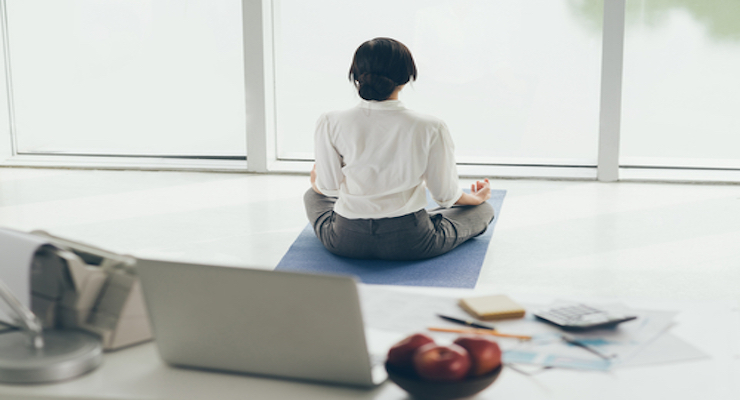For the last four decades, medical studies have been conducted to determine the effectiveness of meditation and other stress-reduction techniques on relieving anxiety and depression. Initially not considered, yoga has started to receive more attention as of late, with one national poll estimating that almost 4% of adults in the United States had practiced the ancient method in the last year and 7.5% of the population having tried it at least once in the past.
The most common type of yoga, hatha yoga, takes a three-prong approach by integrating physical poses, called asanas, controlled breathing, and meditation. A study by Harvard University has found that when these elements are combined it can lead to some amazing results.
It Reduces Physical Stress Symptoms.
Besides often incorporating comfortable yoga wear to help feel good on the outside, yoga makes you physically feel good on the inside. Physiological arousal is decreased and benefits like lower blood pressure, reduced heart rate and ease of respiration start to appear.
Additional research to the Harvard study carried out by the University of Utah measured participants’ response to pain. Researchers created three groups: yoga practitioners, healthy volunteers as the control group, and people with fibromyalgia (a major symptom of the illness is hypersensitivity to pain). As expected, the yoga group had a higher tolerance while those with fibromyalgia had a lower tolerance.
It Improves Mood.
In one German study, a group of women who considered themselves “emotionally distressed” practiced three hours of yoga per week over a period of three months while a control group did not alter their habits.
At the end of the scheduled time frame the women in the test group reported improvements in overall well-being by 65%, decreased depression by 50%, decreased anxiety by 30% and increased energy.
Though it is still unclear exactly how this change occurs, the benefits of yoga on mood are similar to the effects of exercise and relaxation techniques.
[tweetthis]Benefits of yoga on mood r similar to effects of #exercise & relaxation techniques. @Dollarhacks [/tweetthis]
It Helps with PTSD.
Australian Vietnam veterans, all taking at least one antidepressant and many heavy daily drinkers, diagnosed with severe post-traumatic stress disorder (PTSD) participated in a five-day yoga and breathing program. After six weeks, their clinical scores dropped over 26% from “moderate to severe” to “mild to moderate” and the veterans continued to show improvement over six months. The control group, consisting of veterans waiting to be enrolled in the treatment program, did not show improvement.
[tweetthis]#PTSD #Veterans who participated in 5 day #yoga & breathing program improved. @Dollarhacks[/tweetthis]
Experts involved in the healing of American war veterans who served in Afghanistan or Iraq, 20% are sufferers of PTSD, suggest it is a useful addition to other treatment programs.
It Supports Traditional Techniques.
One specific yoga practice involving cyclical breathing patterns, ranging from slow and calming to rapid and stimulating, has benefits similar to taking the tricyclic antidepressant drug imipramine. After four weeks of treatment, more than two-thirds of individuals hospitalized for depression achieved remission, a very close second to the 73% who reached remission on the medication.
Upon completion of one week of standard detoxification for alcohol, participants in an Indian study were assigned to either the yoga breathing practice or a typical treatment for two weeks. After the whole three weeks were completed, depression scores dropped by 75% in the yoga group and 60% in the control group. Physical changes also manifested in the levels of the two stress hormones corticotropin and cortisol dropping in the test group but remaining steady in the control group.
Through scientific study, it has been shown that mental and physical health are highly linked. Therefore, yoga is a great way to manage symptoms of anxiety, depression and stress in a relatively low-risk, high-reward way.
Mikkie is a Chicago native who loves fashion, business, leadership development and saving money (finding ways to stretch it further) as well as helping others do the same. When she is not writing, she can be found playing the piano or around the local rock climbing gym, running, and spending time with family and her doggie, Rosko. @Dollarhacks

















